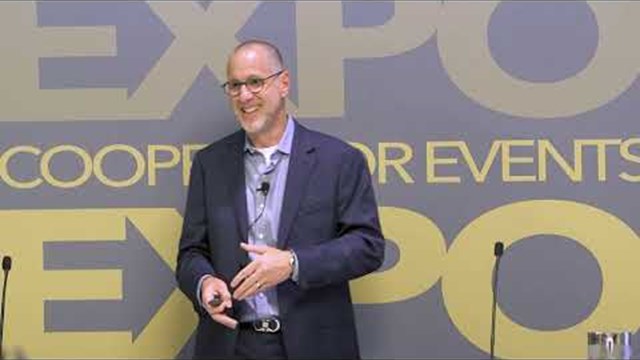
Maybe it was a bad day at work, the dog had an accident on the carpet or a disgruntled call was received from the school principal; whatever the reason, there are times when the last thing a condo board member or resident wants to do is attend a board meeting. Lack of enthusiasm doesn't make these meetings any less crucial and necessary, however, nor does it mean that community members who halfheartedly drag themselves to the common room to conduct association business won't find the energy to squabble, hurl insults, and derail the proceedings once they get there.
That being the case, it often falls to the property manager or the managing agent to keep things civil and the proceedings moving forward. Here are a few ideas to help make meetings as painless and productive as possible.
What Are We Doing Here?
A big first step toward maintaining order and giving structure to any meeting, whether it's a board-only session or an annual gathering of everyone in the building, is to put the meeting's goals and objectives in writing.
“Meetings can often get off track when there is not a clear posted agenda for the meeting. A detailed meeting agenda should be posted in advance of the meeting detailing the items that will be discussed,” says Christopher Murphy, senior property manager for the Jersey City-based mem property management. “Items not included on the agenda should be tabled for later discussion. Additionally, promptly distributing approved meeting minutes of previous meetings can help to prevent redundant issues being brought up.”
If board members and residents aren't adequately prepared for the meeting and/or they use the gathering as an opportunity to grind axe-grind over a personal issue, it's only a matter of time before tempers grow short, progress stalls, and the meeting founders. If that happens, it's up to the manager to mediate, restore order, and guide the proceedings back on track.
“Restoring a meeting that has gone off track requires strong leadership and developing a protocol or guidelines for running the meeting,” says Neil Davidowitz, Esq., president of Manhattan-based management firm Orsid Realty Corp. He adds that if is counterproductive for board members to revisit issues that have already been decided. Other common “derailing” variables, he says, include: not being appropriately prepared, a lack of a defined agenda, lack of strong leadership, and not being provided sufficient information to render a decision.
Giovanni Puerta, senior property manager for the Yonkers-based Trion Real Estate Management, says miscommunication is another issue that leads to ineffective, frustrating board meetings.
“When board members are not in tune with the issues at hand, meetings bog down, because everything takes more time to explain,” says Puerta. “When I have a new board, I take them through the packet a week prior to the meeting and ask them to send me any questions in advance of the meeting. This way at the meeting, I have answers to give them.”
The Ombudsman
Whether a meeting only has a few hiccups or one member takes it upon themselves to hijack the whole operation and filibuster endlessly about some trivial issue, the one person that can and should bring peace and uniformity back to the proceedings is the property manager.
“It is the role of the property manager to keep the meeting running fluidly,” says Murphy. “An effective way to do this is to create timed agendas. When the president calls the meeting to order, he or she should explain that the board is on a schedule and that the meeting will continue per the agenda.”
In Puerta’s experience, there are many times when a board and resident or a board and a managing agent may have differing views on the same issue, but to date he has not seen anyone storm out of meeting. Issues like capital improvements, he says, can cause these types of disagreements. “It’s my job to diffuse the situation and get everybody back on the same page,” says Puerta. “We have to come to a resolution, and the only way to do that is to move on.”
In the event a property manager can’t attend the meeting, it's incumbent upon the president of the board to keep the meeting professional and on-message. “The president or presiding officer needs to keep order,” says Davidowitz.
Since it is human nature to disagree, there have been protocols in place to structure meetings and keep proceedings on-track. For example, Robert’s Rules of Order dates back to the 1800s. The slim volume—and more recently, the Robert's Rules website—“provides common rules and procedures for deliberation and debate in order to place the whole membership on the same footing and speaking the same language.” The goal is to provide for “constructive and democratic meetings, to help, not hinder, the business of the assembly. Under no circumstances should ‘undue strictness’ be allowed to intimidate members or limit full participation.”
While Davidowitz adds that Robert’s Rules help to define parliamentary procedures for conducting meetings, he says, “I think it’s probably too formal for most co-op/condo meetings.”
With regard to Robert’s Rules, Murphy says there key fundamental takeaways that all boards can benefit from. These include: one question at a time; one person, one vote; and majority rule. He adds that during a meeting, according to Robert’s Rules, it is the role of the Sergeant at Arms to keep order. In practice, he concedes, it is typically the property manager’s responsibility.
Formality, Length, and Purpose
When it comes to the administration of a co-op, condo or homeowners association, the word 'meeting' can have many meanings. For example, there are differences between a board meeting, a committee meeting, and an annual shareholder or owner meeting.
Davidowitz explains that a shareholder meeting has a tighter agenda, detailed reporting and all questions and answers are held to the end of the meeting. A board meeting has issues/motions to be decided; time limits need to be set for decisions; and opinions are elicited from the board. A committee meeting is usually called to work on a very specific task (redecorating the lobby, for example, or deciding what to plant in the flowerbeds) and is generally less formal than either an annual or board meeting.
“Board and shareholder meetings are rather similar,” says Murphy. “Committee meetings tend to be a little less formal; however, it is imperative that proper minutes are kept for all meetings.”
With regard to how long a meeting should last, Puerta explains that depends on the type of meeting it is, and what's on the agenda. “A board meeting should be between 45 minutes to one hour.” He says if meetings run longer, it may be because board members are allowing themselves and their colleagues to get stuck on a particular issue—or because they just enjoy the sound of their own voices a bit overmuch.
“Meetings length can vary based upon the size of the building and the items on the agenda,” says Murphy. “Election meetings can often take longer in a large building in order to tally the votes. But generally, an effective meeting should last no longer than 90 minutes.”
A building's size can also determine the style and approach to a meeting, notes Davidowitz. “Smaller buildings have the luxury of conducting their meeting on a more informal basis; it could even be held in someone’s apartment,” he says. Puerta, who represents buildings ranging from 12 to 1,500 units, says the meeting process is more “streamlined” in smaller buildings simply due to the smaller number of people involved.
No matter the size of the building or the type of meeting, experts says that it is imperative that board members and residents are presented defined agenda, handouts and spreadsheets in a timely fashion so that a proper decision can be rendered. And where it is a board president, property manager or a buildings attorney, it is important that when in comes time for questions, equal time is allotted.
“Provide a defined but limited time for Q and A, and don't let a minority of shareholders control it; one question per person, until everyone has had a chance,” says Davidowitz. “If there are additional questions, management and the board can offer to remain after the formal adjournment of the meeting to answer them.”
To ensure that individual shareholders gets the chance to speak during a meeting, it is recommended that all issues, questions and comments are presented prior to the meeting so there is adequate time to research appropriate responses. “An easy way to facilitate this is to have questions and comments submitted in advance of the meeting and addressed prior to the open forum,” says Murphy. “By addressing as many issues prior to opening the meeting to the floor, it will reduce the amount of questions that will be asked.”
Puerta says it is important to keep in mind that board members are volunteers and many members are new to the process. As a result, many issues and concerns can be avoided by a proactive property manager.
“As a manager, it is my job to understand the daily functions of the building so I can explain issues to the board,” says Puerta. “I ask board members to e-mail before the meeting with any and all questions they may have. If there is an issue at a meeting the board president might chime in, but it is up to me—I serve as the mediator.”
In the end, the goal of both a board and a manager is to have the most efficient and expedient meeting possible. This all-important job falls to the manager. “The managers need to prepare the reports for the meeting in advance allowing the board to review the material,” says Murphy. “A detailed, timed agenda needs to be distributed in advance. Approved minutes of previous meeting need to be distributed so that the same issues are not repeated.”
WB King is a freelance writer and a frequent contributor to The Cooperator.






Leave a Comment